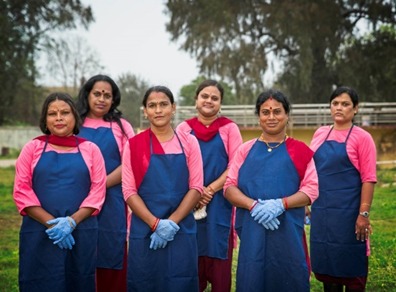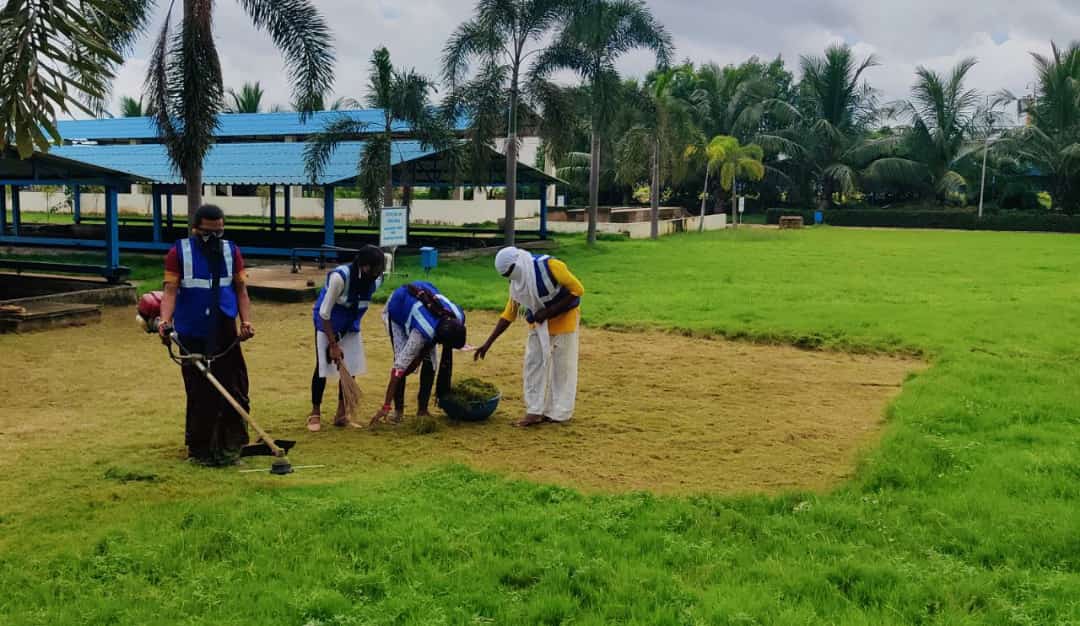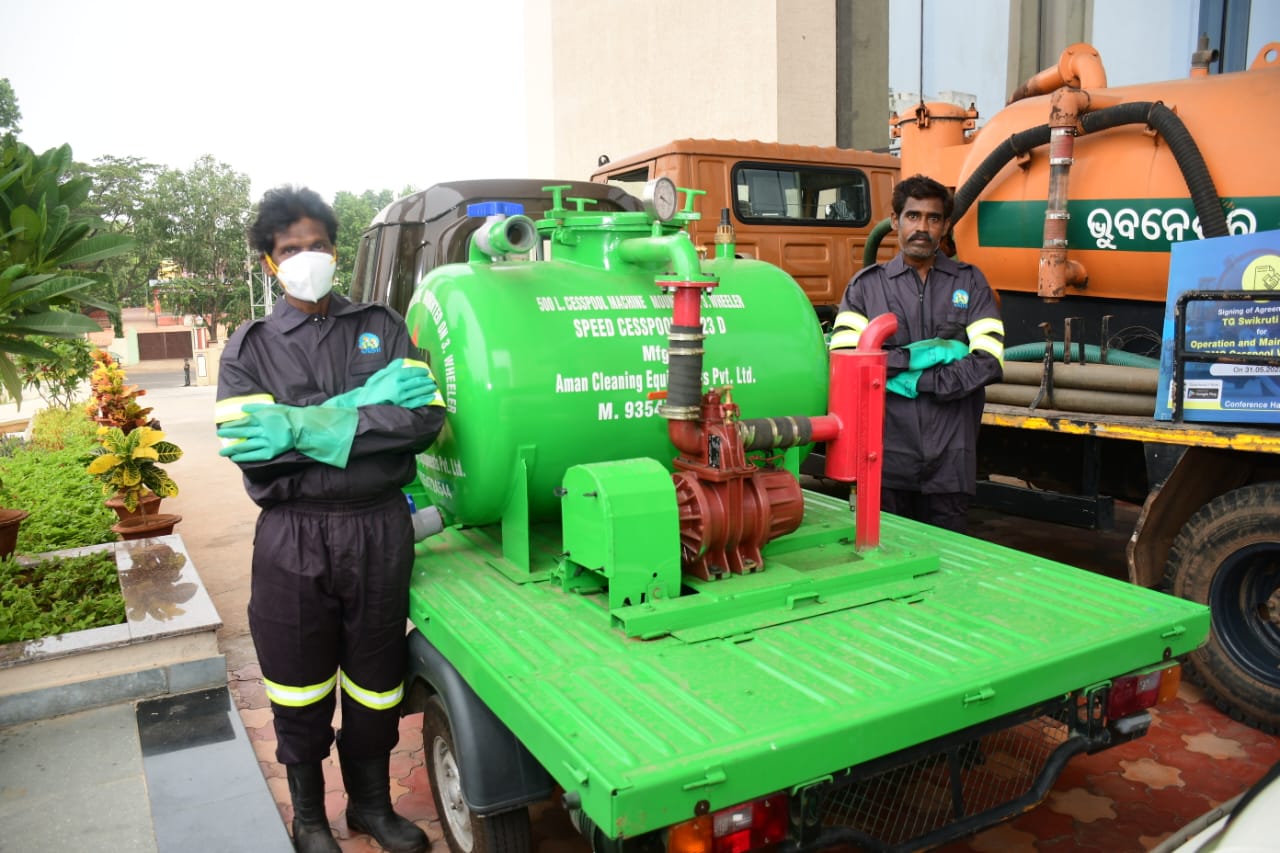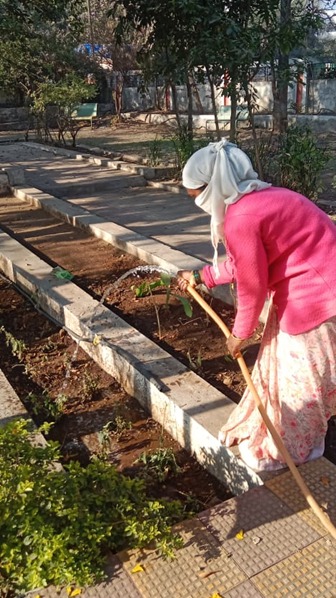Swachh Bharat Mission increased the thrust on sustainable sanitation solutions which led to improvement in the sanitation reach. Higher population densities and urban expansion make it even more challenging to manage vast amounts of waste. Citywide Inclusive Sanitation (CWIS) helps to meet the sanitation challenges in the growing urban areas. It also helps to build on current sanitation technologies and good practices to achieve more comprehensive, effective, and sustainable sanitation services in cities. The outcome of a CWIS approach is that everyone in an urban area has access to and benefits from adequate and sustainable sanitation services.
While public and private sanitation services are dominant players, there are areas beyond their
operational reach, as well as gaps in awareness creation and knowledge building that they are unable to
bridge which impact access to such services. Women-led SHGs and transgender groups have been integrated
across decentralised solid and liquid waste management value chain in a big way, emerging as key service
providers in sanitation. States like Odisha, Kerala and others have handed over services to local SHGs
spearheaded by women or transgender members. The engagement of Community-Based Organisations
representing such vulnerable groups offers a cost-effective way to improve the coverage of sanitation
solutions, and also helps the SHGs generate livelihood opportunities for its member.

A partnership between Mission Shakti Self Help Group (SHG) and the Housing and Urban Development Department (H&UDD) in Odisha resulted in empowering women SHGs and other vulnerable groups in the State. Over 2000 SHGs are now engaged in solid waste segregation, collection and transportation, treatment, reuse and disposal as per standardized norms. The groups are now involved both in service delivery and as implementing partners in a range of urban development programmes – from solid waste to liquid waste management. In order to smoothly and efficiently integrate Mission Shakti SHGs in key urban programmes, ULB functionaries are regularly oriented to provide opportunities to the members to participate and contribute to the urban sanitation in their local areas. Besides being engaged as Swachh Supervisors, Swachasathis, are also operating and managing Battery operated Vehicles (BOVs) and Micro Composing Centres (MCCs), Micro Recovery Facilities and Construction and Demolition (C&D) Waste Management Plants.

Recognizing their contributions, the Bhubaneswar Municipal Corporation (BMC) has also roped in
transgender group for the operation and maintenance of 7 cesspool vehicles in the city. They will hire
authorised drivers and helpers for each vehicle who will be paid the minimum applicable wage. BMC will
impart training to all cesspool vehicle staff on health and hygiene, desludging service, PPE use and
related protocols.

Women-led self-help groups (SHGs) also lead the way in urban sanitation. With proper training and a sustainable financial model, SHGs in Tiruchirappalli have proven that sanitation for all is possible while creating employment opportunities for the community women. There are 400+ community and public toilets in Tiruchirappalli, of which nearly two-thirds are managed by women-led SHGs. Tiruchirappalli has nearly 400 CTs, of which about 150 are managed by women-led self-help groups, organised as Sanitation Hygiene Education (SHE) teams, for more than two decades.

In Maharashtra, Sinnar Municipal Council (SMC) with the support of Center for Water and Sanitation
(CWAS), CEPT University decided to involve the local women’s Self Help Group (SHG) for operation and
maintenance of its Solar powered Grey Water Treatment Plant (GWTP). SMC has also appointed a local
women’s SHG to operate and maintain this plant on a day-to-day basis as well as for reusing the treated
water for maintenance of the garden. With this initiative, SMC is not only being able to maintain its
newly created infrastructure in a sustainable manner but has also empowered the women by generating
meaningful livelihood opportunities for them.
To motivate and mobilize the community with behaviour change communication methods and to orient them on the sanitation program, Madhya Pradesh’s Bhopal & Sagar involved a group of transgenders. After training, a team of 3-4 transgenders visited the assigned places in Sagar and Bhopal respectively to create opinion within the community to get rid of historical practice of open defecation. Their communication methods in local language attracted the citizens to gather around, listen and respond to them easily. The efforts of these committed motivators yielded good results. Madhya Pradesh has decided to take their services on regular basis for community mobilization and also as resource persons to train the newly selected motivators for the campaign.
These cities have showcased how unconventional, yet inclusive initiatives can tackle complex sanitation and social issues. In urban India, sanitation services need to be sustained financially, environmentally, and technically. Therefore, city and national sanitation policies, strategies, and investments help to address the entire sanitation service chain, from the toilet to treatment and reuse or disposal.
WEBSITE: https://sbmurban.org/
FACEBOOK: Swachh Bharat Mission - Urban | TWITTER: @SwachhBharatGov
INSTAGRAM:sbm_urban | YOUTUBE: Swachh Bharat Urban | LINKEDIN: swachh-bharat-urban